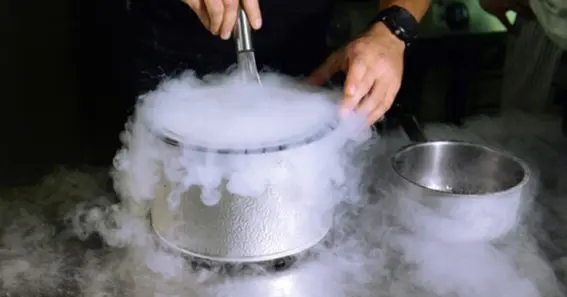What is nitrogen used for? Many natural and industrial processes rely on nitrogen, which is colorless and odorless and makes up 78% of Earth’s atmosphere. This simple inquiry has many intriguing uses. From food preservation to scientific research, nitrogen is useful. This in-depth article on what is nitrogen used for, will demonstrate its importance in our daily lives and beyond.
What Is Nitrogen Used For?
Nitrogen has unique chemical properties that make it valuable in many fields. Its inertness makes it ideal for controlled conditions with low reactions, and its liquid form is needed for very cold purposes. The food industry, medicine, manufacturing, scientific research, and environmental protection use nitrogen the most, which shows how crucial it is to modern living. This short briefing should have given you a basic understanding on what is nitrogen used for.
Also Read N: What is a Blouse? Historical Evolution of the Blouse
Application Of Nitrogen In Various Fields

After what is nitrogen used for, lets know more about its applications. Nitrogen is versatile and utilized in agriculture and other industries. Agriculture fertilizers provide nitrogen to boost plant growth and food harvests. Many fertilizers and chemical processes require ammonia, which is made from it. Food suppliers utilize nitrogen to preserve and package food. It prevents bacteria growth, preserving food. Medicine uses liquid nitrogen to freeze warts and other skin issues and preserve biological materials. Nitrogen is important in electronics and metal manufacturing since it is neutral. It creates non-reactive, controlled surroundings.
Nitrogen In The Food Industry
The food industry relies on nitrogen to preserve goods. In packaging, it keeps air out, which can spoil food. Coffee, nuts, and munchies keep fresh longer after nitrogen washing. Frozen foods need nitrogen, too. Liquid nitrogen freezes food quickly without losing structure or nutrition due to its low boiling point (-196°C). This cooking method keeps seafood and berries fresh. Nitric oxide freezing prevents ice crystals, preserving food flavor and appearance.
Nitrogen In Medicine
Nitrogen is crucial in cryogenics and medical imaging. Blood, eggs, sperm, and other tissues are frozen and stored in liquid nitrogen for future use. This freezing procedure is crucial for reproductive treatments, organ transplants, and medical research. Medical imaging instruments need nitrogen, too. MRI devices employ nitrogen to cool superconducting magnets for clear bodily images. Without nitrogen’s cooling, these tools would overheat and fail. In cryosurgery, nitrogen gas freezes and kills malignant cells to remove aberrant tissues or treat various cancers.
Nitrogen In Manufacturing
Nitrogen is needed to create inert industrial environments that prevent oxidation and contamination. Nitrogen keeps semiconductors and circuit board production areas clean and clear of air and moisture, which can damage sensitive parts. Steel and other metals are made with nitrogen. Nitrogen replaces oxygen in manufacturing to prevent oxidation. This strengthens and prolongs. The auto industry uses nitrogen to inflate tires. Nitrogen inhibits tire pressure reduction, unlike air. Gas is saved, and tires last longer. This program helps maintain high performance and ensures that commercial cars are safe and performing well.
Nitrogen In Scientific Research
Nitrogen doesn’t react with anything, making it beneficial for science, especially chemistry and physics. Laboratory nitrogen keeps reactive gases like oxygen and moisture out of regulated investigation conditions, which is required for reactions with reactive or sensitive chemicals. Cryogenics also use nitrogen to lower temperatures for investigations. Examples include liquid nitrogen for cooling instruments, quantum mechanics, and superconductivity research. Nitrogen preserves DNA and RNA for future use and study in biological science.
Nitrogen In Agriculture
Nitrogen is essential for crop fertilization. Photosynthesis requires chlorophyll. Nitrogen fertilizers, which include lots of ammonia, boost food output. They give plants development and gather nutrients. The nitrogen cycle uses nitrogen, which all living things need. This cycle maintains soil fertility and ecological health, sustaining farming.
Nitrogen In Environmental Management
Environmental management requires nitrogen, especially for waste removal and air purification. Biological activities in wastewater treatment plants convert ammonia and nitrate into nitrogen gas. Gas is released into the air. This prevents contaminants and protects aquatic habitats. Air pollution control systems employ nitrogen to reduce harmful pollutants. Selective catalytic reduction (SCR) systems convert exhaust fume nitrogen oxides (NOx) into harmless nitrogen and water. Nitrogen creates ammonia. Many power plants, companies, and autos employ this technology to reduce air pollution.
Also Read P: What Is An Arbitration Agreement? Legal Framework Of Arbitration Agreements
Future Of Nitrogen Applications

Next after making what is nitrogen used clear, let’s understand it’s future applications. Nitrogen will likely be used more and differently as technology advances. Nitrogen may be used to transport hydrogen fuel, which could help clean up energy. Safe and efficient hydrogen storage and transport using nitrogen molecules is being investigated. New medical treatments and drug delivery methods using nitrogen are also being investigated. Nitrogen-containing nanoparticles could target cells or tissues. It would improve therapeutic efficacy and reduce negative effects. New nitrogen fertilizers in agriculture lower environmental impact and use nutrients more efficiently, supporting environmentally friendly farming methods.
Conclusion
Nitrogen’s unique properties make it essential for food preservation, medicine, manufacturing, and environmental management. As technology and research improve, nitrogen will likely be used for more imaginative and valuable purposes. Knowing nitrogen’s functions helps us comprehend its importance and how it affects our daily lives and future advancement. This article should have provided you with enough knowledge on what is nitrogen used for.
FAQ
What Are Some Everyday Nitrogen Uses?
Nitrogen is utilized in food packaging, medical imaging, cryopreservation, inert atmospheres, and industrial oxidation prevention.
What Ways Does Nitrogen Aid Farming?
Nitrogen is essential for fertilizers and plants. Restoring soil nutrients helps plants develop and provide food.
Why Do You Pump Tires With Nitrogen?
Nitrogen lowers pressure loss when tires are inflated. This saves fuel and extends tire life, improving car performance and safety.
How Can Nitrogen Protect Nature?
A strong gas, nitrogen reduces nitrogen oxides and removes hazardous compounds from wastewater, protecting human and environmental health.
How Is Nitrogen Utilized In Science?
Science uses nitrogen to chill equipment, control test settings, and protect biological samples. Physics, biology, and chemistry are easier to study.
Sources:










